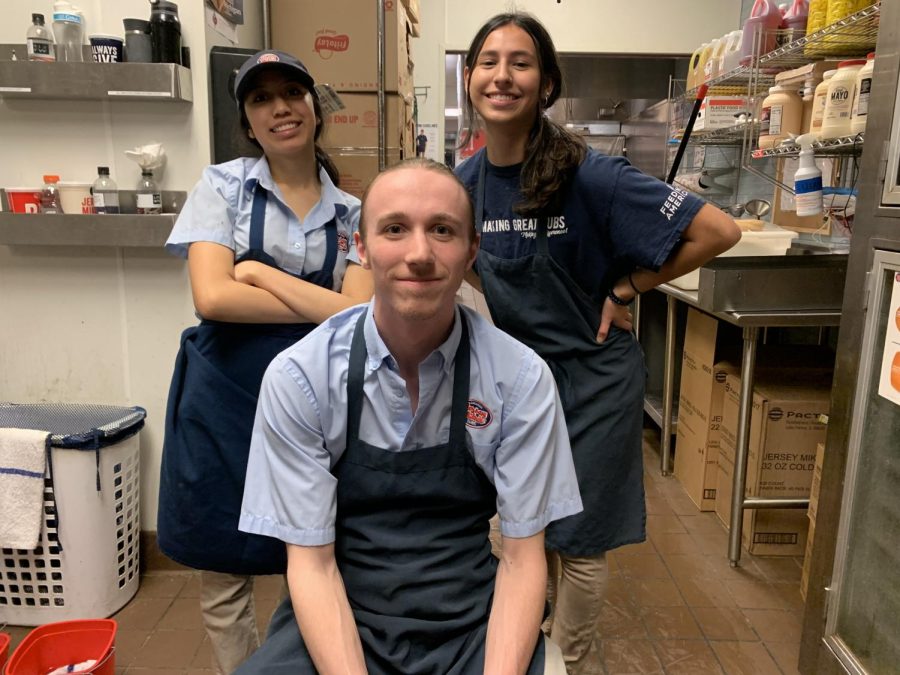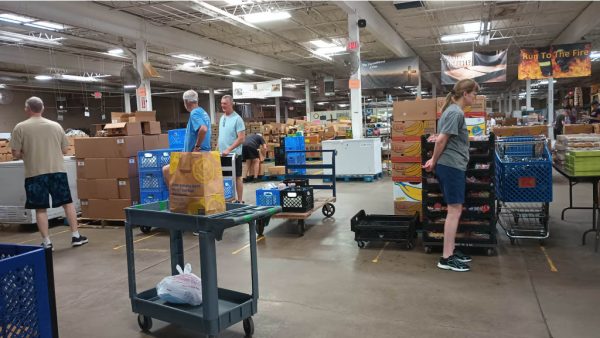Teenagers minimize Michigan’s restaurant industry worker shortage
“It’s very hard to find adults that are willing to be here [Jersey Mike’s Subs],” says Hayleigh Ford, general manager of Jersey Mike’s Subs in Canton on 42448 Ford Road.
Teenagers in Michigan have filled in the gaps of the worker shortage in the restaurant industry by stepping up and working the jobs nobody else will.
Since the COVID-induced quarantine of 2020, employers have been struggling to find full-time staff. Teenagers have been increasing their participation in America’s workforce, but added challenges have complicated part-time employment.
In Michigan, the restaurant industry has been especially affected by the worker shortage.
A press release from October 4, 2021, provided by the Michigan Restaurant and Lodging Association (MRLA), stated that “according to data released by the MRLA about Michigan’s hospitality industry and the revitalization progress, 87% of Michigan operators say their restaurant currently does not have enough employees to support its existing customer demand.”
In response to this decrease in employees, business owners have been trying to offer more incentives to draw more people into their place of work.
A press release from August 11, 2021, produced by the MRLA, stated that “according to a survey released by the MRLA about industry operations and workplace struggles, 95% of restaurant and hotel respondents have increased wages in 2021 with half increasing wages by more than 10% this year. More than 70% have increased schedule flexibility to appeal to prospective employees, while half have offered financial incentives.”
Still, with increased pay and schedule flexibility, staff shortages continue.
Nate Mayo, a long-time employee at Jersey Mike’s Subs in Canton, noted few people were applying for jobs since March 2020 and expressed his concern for the lack of employees and the effect it is having on his staff.
“A lot of people skipped out on work probably just to go seek unemployment and unemployment benefits,” Mayo said, “just because there’s so much there that they can get instead of working during the pandemic and going through all that [COVID fears].”
Mira Wennstrom, a student at P-CEP and employee at Chili’s in Canton on Ford Road, has also taken notice of how the worker shortage has affected both the businesses and the customers.
Her workplace is understaffed and the menu item selection available for customers continues to decrease. This negative combination leads to both unhappy employees and unfulfilled customers.
“Including cooks, custodians, servers and hosting, we need about a 32-person shift,” Wennstrom said. “On average, we have about 10 employees there per shift, and some of our employees are working 14 to 20-hour shifts.”
Wennstrom has made changes to her work in order to adapt to the shortage of workers.
“We actually had to cut hours on the time, so we cut off about four hours of the workday,” Wennstrom says. “[We also had to] limit menu items because it’s harder to get them made with such a short cooking staff.”
Ford has seen more teenagers apply to Jersey Mike’s Subs Canton than adults, but the teens can only do so much with the lack of a complete staff.
“It was like my daytime Monday through Friday crew was non-existent, ” said Ford. “Pretty much it was like I had four people and it’s like, you want to have six per shift.”
“I would say this job kind of regularly takes over my personal life,” said Ford. “And then having a worker shortage makes it obviously intensely worse.”
As the restaurant industry worker shortage continues to negatively affect businesses in Michigan, employers can not help but wonder whether or not their businesses will be able to make a full recovery.
Your donation will support the student journalists of Salem High School - MI. Your contribution will allow us to purchase equipment and cover our annual website hosting costs.












Tyler Mars • Sep 1, 2022 at 7:29 pm
This is great! Thank you wonderful young people!! Great write up!
Tyler Mars • Sep 1, 2022 at 5:51 pm
Wonderful article! Thank you youth! We need you!
Kate • Sep 1, 2022 at 12:23 pm
So proud of you young lady ❤️
James • Sep 1, 2022 at 12:17 pm
It’s nice to have read such a well written article about good things young adults are helping with rather than so many negative things that are reported. Congrats to all the teens that are helping and to Madison for such a well written and informative piece.